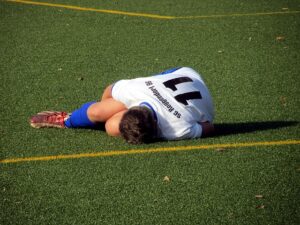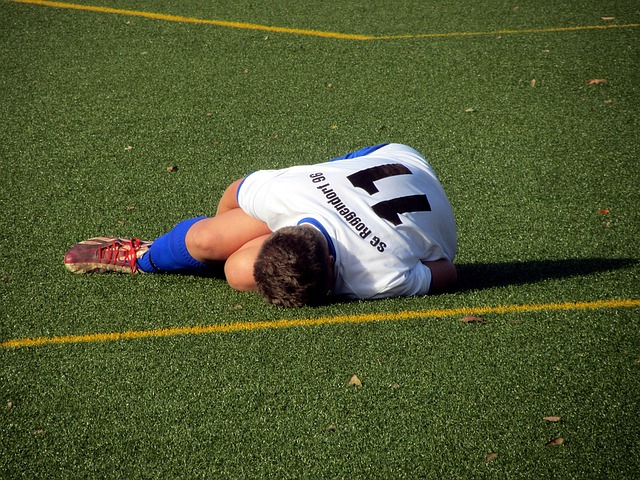How professional athletes deal with career ending injuries
 What happens to those thousands of athletes who are at the top of their sport and suffer a career-ending injury?
What happens to those thousands of athletes who are at the top of their sport and suffer a career-ending injury?
What can we learn from it?
I was drawn to this topic over the last few weeks by a malevolent pincer movement of two angry forces. The first being a knee injury that doesn’t seem to want to go away, and no one seems to know why. The second is the inevitable march of age.
Whenever I get these serious sidelining injuries, and I have a history of them every 5 years or so, my head immediately goes to worst case scenarios.
My inner demons start asking poor questions.
“What if this is it?
“What if I’m done running?”
“How do I live without it?”
(As a side note; I fully expect to recover from this current setback and go on to do many more adventures. But, it is a point of introspection where you can literally step off the treadmill of training and look at how it fits into your life. I might use the terms introspection and reassessment).
I begin to understand how much of my lifestyle is wrapped around those workouts and big races. I feel the cold winds of loss ripping through the holes left when these athletic anchors are gone.
One of the questions I had was what do real athletes do? How does the star high school or college player deal with their entire life trajectory changing suddenly? How do they find their way out of the stinking morass of self-pity and sadness into coping and eventually finding a new purpose?
And, of course, I found someone else had this idea and created a support group around it.
That group is SideLinedUSA.org. They have a resources page of “Insightful articles for helping permanently-sidelined athletes find a meaningful way forward”.
On this page they have athletes who have gone through this career-ending shift document how they navigated the change in their own words.
There are a good variety of perspectives. Different competitive sports, different levels of competition all brought together by that shared experience where the Doctor says “We recommend you stop XYZ”
Most of the athletes experience shock, anger, depression and go through the meat grinder stages of loss. Eventually they begin to move forward.
What are some of the strategies?
- Talk to someone. Athletes are so focused and self-reliant by nature they don’t always have the support systems they need for this kind of transition. It helps to find someone you can trust to talk about it with. This is probably someone outside of the current sport framework. ‘Talk it out’ means getting those emotions out, not sitting on them and trying to be strong.
- Take a broader perspective when you think about your life. Think about all the other things that you do and love besides this thing. Celebrate your whole life not just this one aspect.
- Focus on the future. You can’t change the past. Let it go and start working and moving forward.
- Find some other interest or pursuit that you can pour your energies into. The same things that made you good at your sport can translate to any pursuit.
- Consider a pursuit that aligns with your sport, without direct competition, like coaching. Finad ways to help people. By helping others you will find reason and purpose.
- Stay physically active.
- Have faith. You will find a life just as fulfilling after you make the transition.
A consistent theme across these recovery stories is using what your sport taught you to continue success outside of the sport.
What are those things? Think about it. The grit and determination to do hard things in pursuit of a goal. The consistency of showing up every day to work out. The ability to set a big goal, create a plan to get you their, execute on that plan and adapt in the face of daily uncertainties. Those are skills and demonstrated capabilities that apply to any pursuit.
Wellness is not just physical. Wellness is mind, body and spirit. Sometimes we lose this in the simplicity of a hard training cycle. Moving forward through transitions you need to make sure that you have balance in all these areas.
The main strategy here is “The game is not over, you just switched playing fields.”
One of the best articles I read was by an ex-skater. She had her eyes on the Olympics but got sidelined by a knee injury. Instead of giving up, she transitioned through the grieving and sadness, but kept her mindset as an athlete and applied that to everything else in here life. You can feel the fire in her.
She advises:
Don’t deny who you are.
You’re an athlete. You can’t change that. It isn’t what you did. It is part of who you were. It should still be part of who you are.
You may not be a skater or a runner anymore but you’re still an athlete. You eat like an athlete; you train for life like an athlete. You still train. You train to not suck at life.
And I’ll quote directly from her now to take this out:
“I know that you are scared, lonely and sad.
I want you to know, you are going to be okay.
You are going to be okay.
In fact, you are going to be better than okay.
You are going to be amazing.
You are going to have a wonderful life.
Remember who you are. You are an athlete and a competitor. Never, ever lose sight of that. Lean into that — and be the champion of your own life.”

